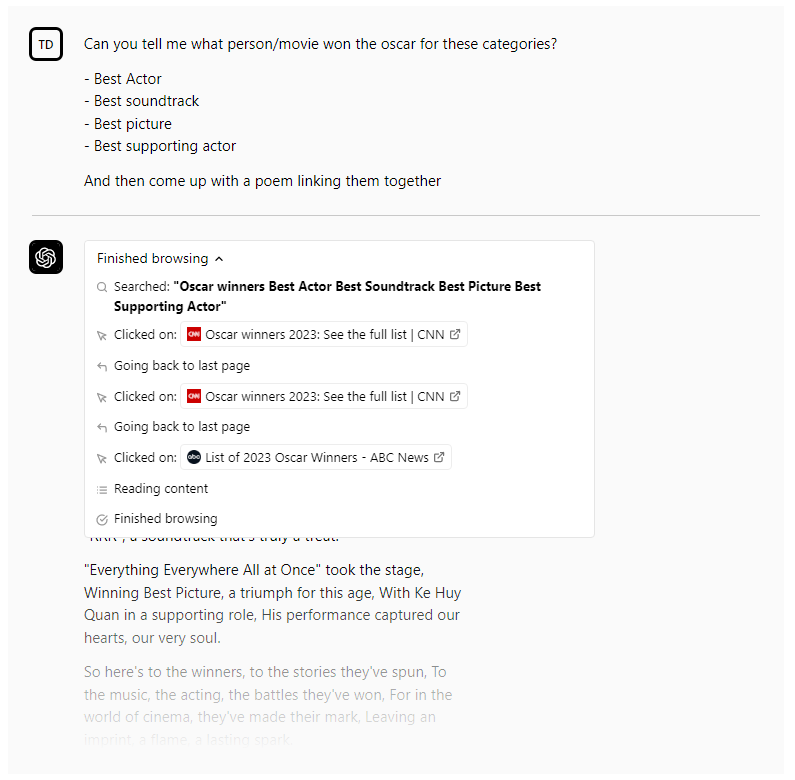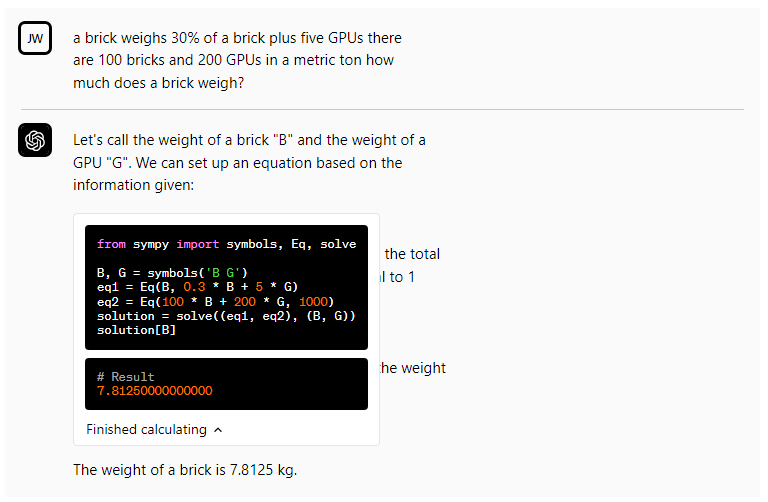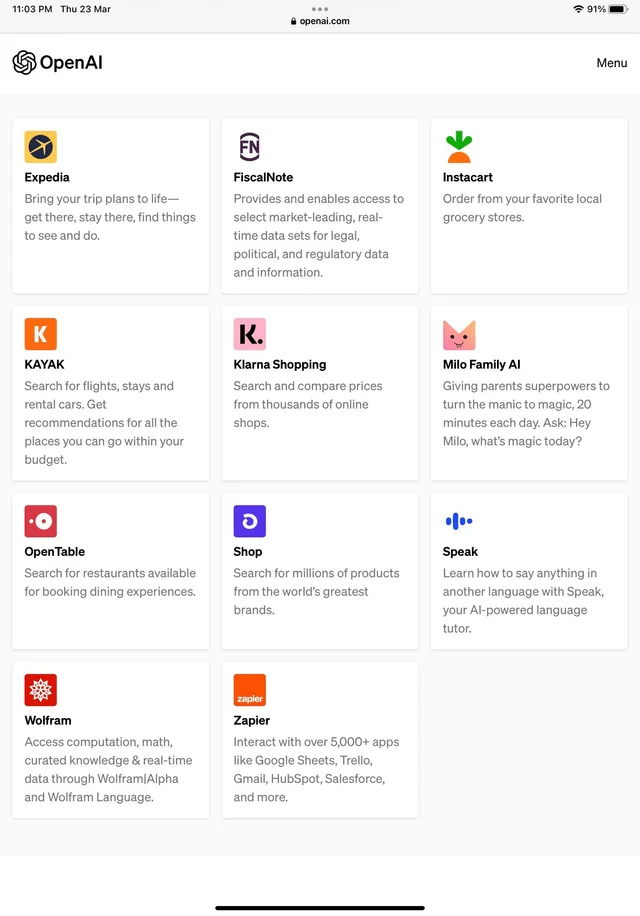OpenAI has released plugins for its AI-powered chatbot, ChatGPT, that enable it to access third-party knowledge sources and databases, including the internet. These plugins, available in alpha mode to developers and subscribers of the premium ChatGPT Plus plan, aim to extend ChatGPT’s functionality by prioritizing a small number of users before expanding to a larger audience and API access.
One of the most exciting plugins is OpenAI’s web-browsing plugin, which allows ChatGPT to source information from the web to answer various questions. Previously, ChatGPT’s knowledge was limited to events, dates, and people before September 2021. The plugin utilizes the Bing search API to retrieve data from the internet and cites sources in ChatGPT’s responses.
However, granting chatbot access to the web presents risks, as demonstrated by OpenAI’s previous research. In 2021, the AI startup created WebGPT, an experimental system that occasionally referenced unreliable sources and was incentivized to select data from sites it thought users would find credible, even if those sources were not the most reliable. Furthermore, Meta’s BlenderBot 3.0, which also had internet access, went off the rails and delved into conspiracy theories and offensive content when prompted with certain text.

OpenAI acknowledges that enabling ChatGPT to access the web could result in undesirable behaviors, such as sending spam and fraudulent emails, bypassing security restrictions, and generally empowering malicious actors who would deceive, mislead, or abuse others. Nevertheless, the company asserts that it has “implemented several safeguards” based on internal and external red teams to prevent this from happening.
OpenAI has introduced several new features to ChatGPT, including a code interpreter that equips the chatbot with a functional Python interpreter in a sandboxed, firewalled environment and disk space. It supports file uploading and results downloading. It is particularly useful for solving mathematical problems, analyzing and visualizing data, and converting files between different formats.

In addition to OpenAI’s own web plugin, a group of early collaborators has developed several other plugins for ChatGPT, including Expedia, FiscalNote, Instacart, Kayak, Klarna, Milo, OpenTable, Shopify, Slack, Speak, Wolfram, and Zapier.

These plugins are mostly self-explanatory. For example, the OpenTable plugin enables the chatbot to search for available restaurant bookings. In contrast, the Instacart plugin allows ChatGPT to place orders from local stores. Zapier is by far the most adaptable, connecting with apps such as Google Sheets, Trello, and Gmail to trigger a variety of productivity tasks.
The company has made a “retrieval” plugin available open source to encourage the creation of new plugins. This plugin permits ChatGPT to obtain sections of documents from data sources such as notes, files, public documentation, or emails by asking questions in natural language.
OpenAI stated in a blog post that they are working on developing plugins and making them accessible to a larger audience. They seek to build something helpful and secure with the assistance of everyone.
The inclusion of plugins in the development of ChatGPT is a fascinating progression. ChatGPT, previously limited to the information contained within its training data, can now do much more with plugins, potentially with less legal risk.
Some experts have accused OpenAI of profiting from unlicensed work on which ChatGPT was trained since ChatGPT’s dataset includes a broad range of public websites. However, plugins might address this issue by allowing companies complete control over their data.
Related Stories:
